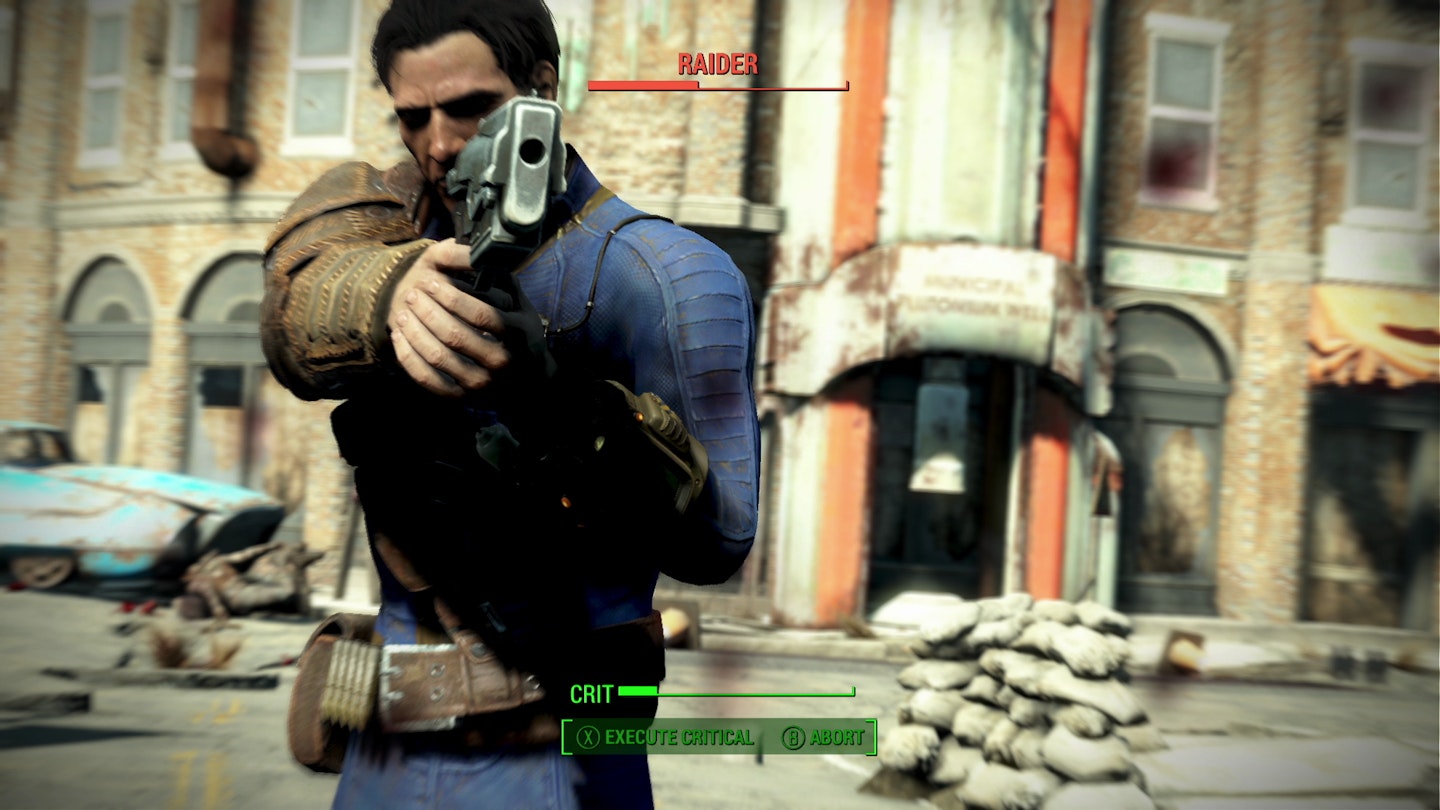Winter is closing in, and at this time of the year, discerning gamers tend to develop a very specific craving. When the weather becomes so filthy that the prospect of leaving the house fills one with dread, nothing is more comforting and welcome than a big, meaty, open-world role-playing game. One in which you can lose yourself for hundreds of hours and temporarily lead a vicarious life that enables you to block out the unenticing reality. Fallout 4 is the epitome of such a game, so its arrival could not be better timed.
RPG devotees still speak about 2008’s Fallout 3 in hushed, awed tones: it won vast numbers of awards and was generally agreed to have dragged open-world RPGs into the modern world single-handedly. That explains why Fallout 4 is perhaps this year’s most hotly anticipated game – but also means it has a lot to live up to.
As far as fans of the franchise are concerned, Fallout 4 contains everything that they could desire. It’s huge – you could easily sink 200 hours of your life into exploring every inch of the map, completing all the missions and side-missions, looting every house and even building your own settlements. The biggest new element of the game is a large-scale crafting engine that lets you build everything from chairs up to entire houses, wall by wall and object by object. It works pretty intuitively: as long as you have the requisite resources (and you can easily break down the junk you find lying around into its constituents), you simply place whatever object you are about to build. And that engine extends to crop-planting and food production so, if you want, you can live a whole life in the game as a post-apocalyptic farmer, say. Fallout 4 is even more of a tinkerer’s paradise than its predecessor.
Story-wise, it takes place at around the same time as Fallout 3, 200 years after the nuclear war which laid waste to the Earth, with the action switched from Washington to Boston. This time, though, you get to see the apocalypse itself: you start off in your perfect nuclear-family home, attended by your robot butler Codsworth, but soon have to hurry to the nearest Vault shelter, with your spouse and baby (an excellent character-creation utility lets you choose sex and appearance, and there are plenty of subsequent opportunities during the game to change your looks). There, the three of you are cryogenically frozen, but just as you’re waking, you witness your spouse being murdered and your son Shaun being kidnapped.
So along with the sheer insanity of returning to a ruined surface world 200 years after you left it, you have an overwhelming, emotive quest: to find your kidnapped son. As far as Fallout 4’s main story is concerned, Bethesda has once again shown the rest of the games world how to do the sort of nuance and depth, flecked with humour, self-interest and cynicism, and punctuated with properly thought-provoking twists, that games are invariably – and lazily – criticised for lacking. Fallout 4 plunges you into a stunning realisation of a post-apocalyptic world which is both harrowing and surprisingly life-affirming.
Despite that, though, it has flaws. Perhaps the most surprising being that in visual terms, it somewhat disappoints. It just doesn’t look like it has had the benefit of eight years’-worth of technological advances in comparison with Fallout 3. And, like Fallout 3, it is glitchy and occasionally buggy. Of course, it’s impossible for a game that is as huge and ambitious as Fallout 4 to eradicate any trace of glitching – and its underlying systems are so sophisticated and well set up that instances of emergent behaviour are two-a-penny. But collision-bugs abound, and even some which cause crashes. We played through it on the Xbox One, and unfortunately also encountered moments when the frame-rate falters.
The sheer richness and extent of the gameplay on offer allows you to gloss over such messiness as much as possible, but it does cast something of a larger shadow this time around. Bethesda has made some other tweaks to the gameplay, too. For example, although the V.A.T.S system which lets you target individual body-parts, each with a different probability that your shot will hit its target, is still in the game, it is initially hidden, making Fallout 4 resemble a conventional third- or first-person shooter more than its predecessor. You soon learn, though, that there are times when V.A.T.S comes in handy – despite the gloriously baroque, steampunk weapons on offer (fancy a rocket-powered sledgehammer or a railway-spike gun?) and the brilliant weapon-modding system, Fallout 4 isn’t, in essence, a shooter.
For those who want to retreat to a convincing yet entertaining fantasy world which disdains any traces of sub-Tolkienism, Fallout 4 is a dream made flesh. But ultimately, it suffers in comparison with Fallout 3. Unlike that game, Fallout 4 doesn’t feel as though it has irrevocably changed the very nature of RPGs as we know them. It’s a very, very good game that will bring joy and satisfaction to millions of people. But it hasn't achieved the level of greatness managed by its forebear.
